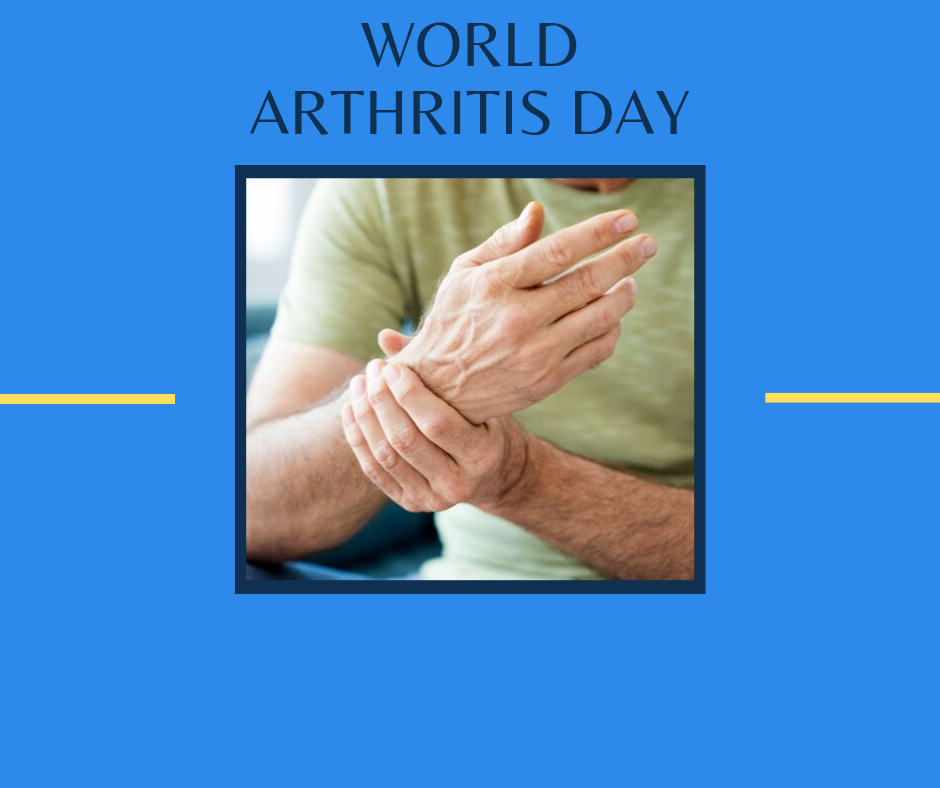Today is World Arthritis Day. We discuss what arthritis is, how individuals can manage their symptoms, and strategies for living with dementia and arthritis.
What is arthritis?
Arthritis is a term that describes joint inflammation, leading to redness, swelling, pain, and stiffness. Arthritis can affect any joint in the body, but most often impacts the hips, knees, or spine. Arthritis is a chronic condition, meaning that individuals are affected over their lifetime and it is through treatment options that individuals with arthritis can continue to live well.
What are the symptoms of arthritis?
The symptoms of arthritis can be mild or severe, depending on each individual person. Typical symptoms of arthritis include chronic pain, fatigue, limited mobility, decrease in mood, and can affect individuals in episodes, meaning they are experiencing symptoms so much that it impacts their quality of life.
What are some treatment options for arthritis?
While there are many different types of arthritis and it affects individuals so differently, it's important to speak with your doctor and start a treatment plan for arthritis. Some treatment options include medications, surgery, physical activity, physical therapy, joint protection, hot and cold therapy, and many others. It's important to be aware of your pain and contact your doctor if you experience any new symptoms.
What are some ways to manage arthritis? For people with dementia?
For individuals with arthritis, it is possible to continue to live well. It is important to take charge of your health and know your limits. Many individuals find new activities that help to ease their pain and continue their engagement in their communities. It's important to find strategies that work for you and to recognize your pain and stop to prevent further pain. During daily tasks, it's essential to take breaks, stretch, and rest when necessary.
Arthritis for persons living with dementia might make a diagnosis more complex. However, if persons are diagnosed with arthritis prior to their dementia diagnosis, having a treatment plan is essential to continue managing arthritis with dementia. For individuals who might develop arthritis after a dementia diagnosis, as a care partner it is important to recognize the symptoms of arthritis and notice if a person with dementia is experiencing pain during certain situations. If they begin to hold their wrist, back, or knees during activities, schedule a doctors appointment and inform your doctor of these symptoms. While some persons living with dementia will be able to express their pain, others who are further along their journey might not be able to. Creating a treatment plan with your doctor can help to find a schedule and treatment regimen that works to help prevent pain or further worsen an arthritis diagnosis. It's essential to ask your loved one with dementia where they are experiencing pain and help them to find a plan that helps to ease their pain.
How can you better support people with arthritis?
As a way to better support people who have arthritis, it's important to recognize the signs and not encourage individuals to overdo it on certain activities. Help individuals to find the right treatment options for them and support them through this plan. Be a supportive friend, family member, or neighbour and offer them with help where necessary. For example, is it more difficult for them to garden, cook, or do other activities? Offer them with some extra help or bring them a meal once in a while. Offer to engage in new activities with them, such as swimming or light walking. Living well with arthritis is possible and finding solutions to help manage arthritis and pain can help individuals to do so. For persons living with arthritis and dementia, there are more complexities involved, but the same thing remains the same, be there for your friend, relative, or neighbour and support them as best as you can.

